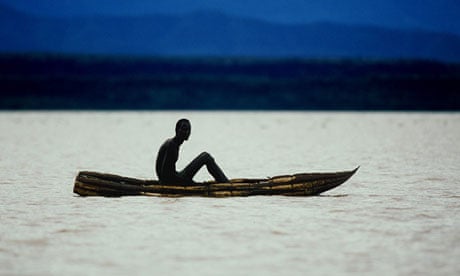As American financier Warren Buffett once said, "price is what you pay, value is what you get". Price is set by the market. Value needs to be assessed and determined. This is worth bearing in mind as we consider the value of water – for it is worth far more than what we pay for it.
All sorts of factors influence water prices: supply and demand, technology and regulation. Determining value is more challenging, especially in many developing countries where water is regarded as priceless.
As the world's population swells, climate change intensifies and water usage by agriculture and industry continues to increase, water demand grows. It is estimated that by 2030 demand will outstrip the capacity of existing infrastructure by about 40%, rising to over 50% in rapidly developing countries. A whopping £13tn of investment is needed in the world's pipelines, storage and treatment plants to keep pace.
"It is this infrastructure renewal need that will drive the economics for water pricing," Dr Zafar Adeel, director of the UN Institute for Water, Environment and Health, told me a couple of weeks ago. "The only way you can recover it is by costing water to the full extent of what it takes to produce it: to treat it, to pump it, to deliver it to the doorstep of the consumer."
But this creates a huge dilemma for the developing world. For example, in July the World Bank loaned Kenya £97m to pay for new water infrastructure such as an irrigation scheme on the Lower Nzoia river. This lifeline will give local farmers a stable source of water. However, it also pushes up the cost of water.
In the west, passing this cost on to business might put a break on profits, but in the developing world rising water rates could render agricultural industries uncompetitive or laden them with unsustainable debt.
This cuts to a critical issue. Who should bear the cost of delivering water through the supply chain? Consumers in advanced economies, multinational businesses, or developing country suppliers and their populations?
"It is a very, very tricky issue," says Adeel. "In developing countries [the reaction to water pricing is to] say 'this is just a conspiracy to deprive us of water by making it so expensive that we can't afford it'."
Access to safe drinking water is now regarded as a basic human right, enshrined by the UN General Assembly and Human Rights Council, and yet 783 million people – 11% of the world's population – are still living without it.
The idea is that we must now consider the social value of water and not simply surrender it to the highest bidder.
Sure, the free hand of the market allows for price discovery and investments in infrastructure. Its principles even underpin virtual water trading. But is it better for a litre of African water to go not to the village in the valley nearby, but to a farm growing lettuce for European supermarkets? Consider also that a source of water can have spiritual significance to local communities. Is it right to privatise this?
The sensitivity of the issue was underlined earlier this year after a video emerged of Nestlé's chairman, Peter Brabeck-Letmathe, appearing to say that it is "extreme" to regard water as a public right. "Water is a foodstuff like any other, and like any other foodstuff it should have a market value," he said.
Faced with a storm of controversy, Nestlé, the world's leading bottled water seller, clarified that the chairman does, in fact, believe water for drinking and hygiene to be a human right. Brabeck-Letmathe explained in an interview with Jo Confino in February that Nestlé simply thinks that a market value should be placed on the "98.5% of the water" that, it says, is not directly used by humans. This raises some important questions. Should we subsidise the water that is valuable for humans and allow the market to set the price for the excess? What about the water that is essential to animals and the environment? What price should it fetch?
Last October, the World Business Council for Sustainable Development (WBCSD) challenged companies to take water valuation seriously, launching a report Water Valuation: Building the Business Case. Peter Bakker, the WBCSD president, called on the business community to "start tackling this issue, accounting for the real value of the water they are using, and to do it now, before it is too late."
Getting business to pay attention is, however, only the first priority. Determining the "true" value of water at all stages in the supply chain is essential if we are to price it correctly and ensure that nobody – and no country – is shortchanged.
Tell us what you think
We'd like to know your thoughts on water valuation specifically in developing countries so please leave a comment below or tweet us @GuardianSustBiz.
Join the community of sustainability professionals and experts. Become a GSB member to get more stories like this direct to your inbox

Comments (…)
Sign in or create your Guardian account to join the discussion